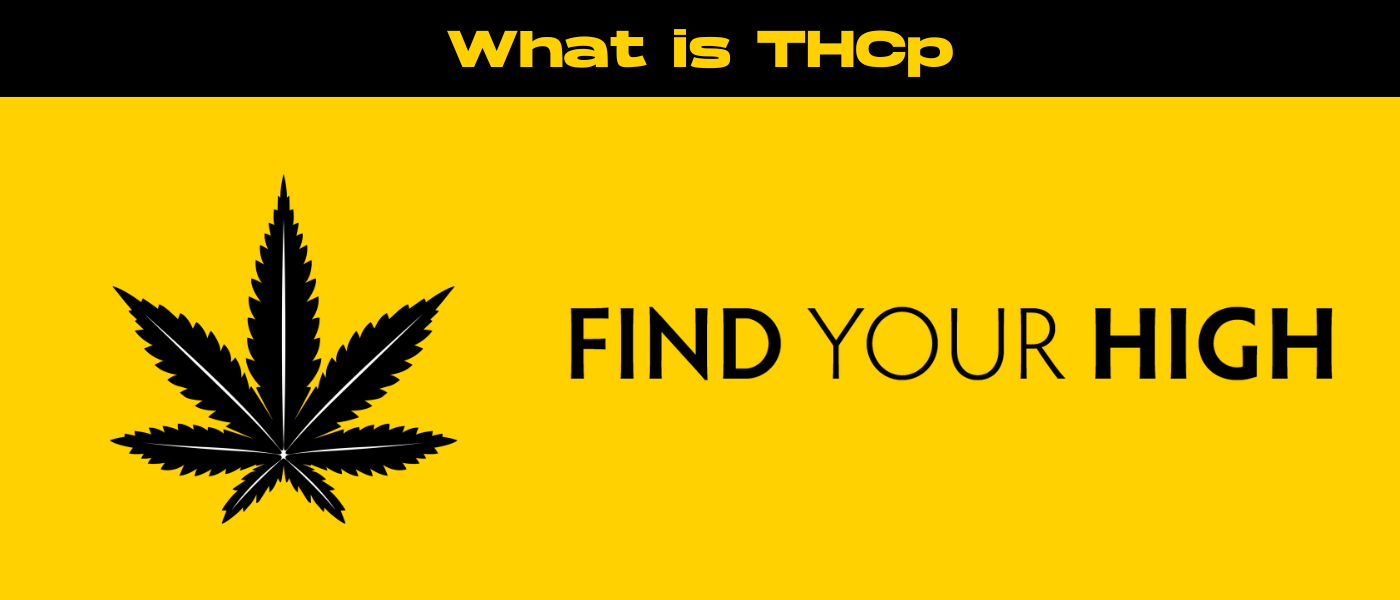THCp might be a new term for many, but it’s becoming a buzzword in the world of weed. But what is THCp, you may ask?
Standing for tetrahydrocannabiphorol, THCp is a potent psychoactive cannabinoid found in the cannabis plant. While it shares some similarities with the more well-known THC, THCp is said to be much more potent, making it a topic of growing interest for both researchers of cannabis plants and cannabis enthusiasts.
Understanding THCp is important because it could have significant implications for both medicinal and recreational cannabis use. In this blog, we’ll dive deep into what THCp is, how it works, its potential benefits, and what sets it apart from other hemp-derived cannabinoids. Buckle up, we’ve got a lot to cover!
What is THCp?
THCp, short for tetrahydrocannabiphorol, is a cannabinoid naturally found in the cannabis plant. It essentially resembles THC, the most famous cannabinoid, but with a notable twist: it’s believed to be significantly more potent.
The discovery of THCp is fairly recent, with Italian researchers identifying it in 2019. Since its identification, scientists and cannabis enthusiasts alike have been intrigued by this newly discovered cannabinoid as well as its potent effects and benefits. The discovery opened new avenues for exploring cannabis’ diverse chemical makeup and understanding how different cannabinoids interact with the human body.
When compared to other cannabinoids like THC and CBD, THCp stands out due to its unique chemical structure. This slight variation is what contributes to its increased potency and potentially different effects. While THCp shares some similar psychoactive and medicinal properties with THC, its heightened potency could make it a game-changer in both the medicinal and recreational cannabis spheres.
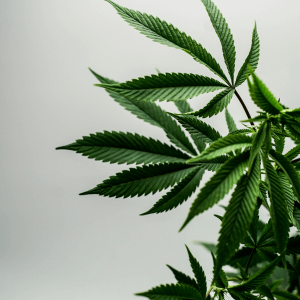
Chemical Structure
Taking a closer look at THCp’s molecular structure reveals some fascinating details.
THCp and THC share a similar core structure, but THCp boasts an extended alkyl side chain—often referred to as the “tail.” This might sound like minor chemistry jargon, but it’s actually a big deal. The elongated “tail” in THCp’s chemical structure is what contributes to its heightened potency.
While THC’s side chain contains five carbon atoms, THCp’s tail extends to seven, which significantly enhances its ability to bind with the CB1 cannabinoid receptors in the brain. This stronger binding is believed to amplify the psychoactive effects, making THCp approximately 33 times more active than THC found in existing marijuana strains.
Understanding these molecular nuances is key to appreciating why THCp is gaining so much attention and could potentially revolutionize the cannabis industry.
How THCp Interacts with the Endocannabinoid System
To understand how THCp products work, it’s essential to first get a grasp on the endocannabinoid system (ECS). The ECS is a complex cell-signaling system present in all mammals, and it plays a crucial role in regulating a wide range of functions and processes, such as mood, appetite, sleep, and immune response.
The system primarily consists of endocannabinoids, receptors (like CB1 and CB2), and enzymes that break down endocannabinoids once they have completed their function. The CB1 receptors are predominantly located in the brain and central nervous system, whereas CB2 receptors are more commonly found in peripheral organs and cells associated with the immune system.
What makes THCp particularly interesting is its interaction with these endocannabinoid receptors. Thanks to its extended alkyl side chain, THCp binds to CB1 receptors much more effectively than THC. This stronger binding affinity means that even a small amount of THCp can have a profound impact, amplifying the psychoactive effects when compared to a similar dose of THC. This enhanced interaction with the ECS is why THCp is generating so much interest—it could potentially offer more potent therapeutic and recreational effects with smaller doses.
Psychoactive Properties
Diving into the psychoactive properties of THCp reveals just how unique and intriguing this cannabinoid truly is.
Due to its enhanced ability to bind with CB1 receptors in the brain, THCp is said to be up to 33 times more potent than regular THC. This heightened potency means that even a small amount can produce significant psychoactive effects.
Users have reported experiencing intense euphoria, heightened sensory perception, and a more profound sense of relaxation. While these effects can be exciting for recreational users, it’s also crucial to approach THCp with caution due to its amplified strength.
Anecdotal evidence from cannabis enthusiasts suggests that THCp’s effects are longer-lasting and more intense, making it advisable for new users to start with very low doses.
Medical Benefits
The medical benefits of THCa and THCp are areas of growing interest and research. Preliminary findings suggest that the heightened potency of THCp could make it a powerful option for pain management, anxiety relief, and anti-inflammatory effects. THCa, in its raw, non-psychoactive form, is also being studied for its potential therapeutic benefits.
Compared to other cannabinoids like CBD and regular THC, THCp’s stronger interaction with the endocannabinoid system might offer more immediate and noticeable therapeutic benefits. THCa, when decarboxylated into THC, may also contribute to these benefits, providing a broader spectrum of medical applications.
Early studies are exploring THCp’s potential to provide relief for chronic pain, insomnia, and other ailments that resist standard treatments. Similarly, THCa is being investigated for its potential in treating various conditions due to its anti-inflammatory and neuroprotective properties. While more research is needed to fully understand their medical applications, both THCp and THCa hold promise as potent therapeutic agents in the evolving landscape of medicinal cannabis.
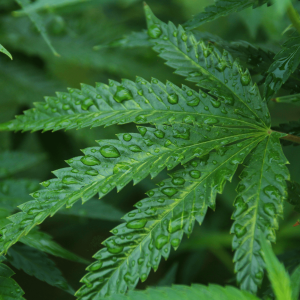
Is THCp Legal?
When it comes to the legal status of THCp products, the landscape is quite varied and still evolving. In many places, THCp is unregulated simply because it’s such a new discovery. Unlike THC, which has been the subject of extensive legislation and debate for decades, THCp hasn’t yet caught the regulatory eye in most jurisdictions.
However, the potency of THCp could soon prompt lawmakers to take a closer look. In regions where THC is heavily regulated or illegal, such as many parts of the United States, it’s likely that THCp will face similar scrutiny.
On the other hand, countries with more relaxed cannabis laws, like Canada and parts of Europe, might be more open to exploring the benefits and regulations of THCp.
How it Compares to the Legality of THC
Compared to THC, which has a well-established legal framework in many places, THCp exists in a bit of a grey area. THC regulations often center around the psychoactive effects of the compound, so given that THCp is significantly more potent, it could face even stricter regulation.
However, the current lack of specific laws targeting THCp offers both opportunities and challenges. For the time being, those interested in exploring THCp’s effects may find themselves operating in a legal grey zone, benefiting from the absence of explicit restrictions while also lacking clear legal protections.
Future Legal Considerations and Potential Changes
Looking ahead, the legal status of THCp is expected to change as it gains more attention. Researchers, lawmakers, and cannabis industry players will likely push for more clarity and regulation.
Given its increased potency, jurisdictions may extend existing THC laws to include THCp or develop specific regulations for this new cannabinoid. Additionally, ongoing research into its medical benefits could influence future legislation, potentially opening new pathways for medicinal use.
As the conversation around cannabis continues to evolve, THCp is surely poised to become a significant part of the dialogue, both in legal and medical contexts.
Differences Between THCp and THC
When comparing THCp and THC side-by-side, a few key differences stand out, especially regarding potency and effects.
THCp is known to be up to 33 times more potent than regular THC, which means that even in smaller doses, THCp delivers a much stronger psychoactive experience. This enhanced potency is due to THCp’s unique chemical structure, specifically its extended alkyl side chain, which allows it to bind more effectively to the CB1 receptors in the brain. As a result, THCp users often report more intense euphoria and heightened sensory experiences.
On the biological front, while both cannabinoids interact with the endocannabinoid system, the stronger affinity of THCp for CB1 receptors means it can potentially offer more pronounced therapeutic benefits with smaller doses, making it a fascinating subject for further medical research.
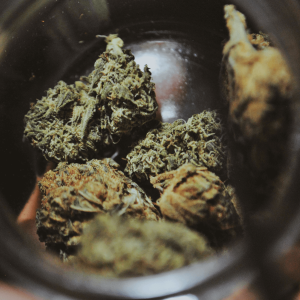
How THCp is Produced
THCp can be produced through both natural extraction and synthetic production, each with its own set of methods and challenges. Natural extraction typically involves isolating THCp from cannabis or legal hemp plants using solvents such as ethanol or CO2, ensuring that the extraction method preserves the cannabinoid’s integrity.
On the other hand, synthetic production involves chemically synthesizing THCp in a lab setting, which allows for precise control over its purity and potency. Commercially, companies may use a combination of both methods depending on the desired quality and cost-effectiveness.
However, the production of THCp comes with its own set of challenges, including the complexity of isolation, the need for advanced technological processes, and regulatory obstacles. These factors often result in a higher production cost and can limit the availability of THCp on the market.
Common Consumption Methods
Edibles
THCp edibles have become a favored choice for consuming THCp, particularly for individuals who prefer a smoke-free method. Options such as gummies, chocolates, and baked goods infused with THCp provide a discreet and enjoyable way to experience its effects. Among these, hemp gummies stand out as an enticing option, offering both the benefits of THCp and a delicious treat that seamlessly fits into any routine. This variety ensures a convenient and pleasurable consumption experience, making THCp edibles a compelling choice for many.
Edibles provide a longer-lasting high because they’re metabolized by the liver, transforming THCp into a more potent form before it enters the bloodstream.
Tinctures and Oils
Tinctures and oils are another common method, offering versatility and precise dosing. Typically taken sublingually (under the tongue), these products allow for quick absorption into the bloodstream.
Tinctures and oils can also be added to food and beverages, giving users the flexibility to incorporate THCp into their daily routines without any inhalation.
Smoking and Vaping
Traditional smoking and vaping remain popular among cannabis enthusiasts for their immediate effects and straightforward use. THCp-rich flower can be smoked in joints or pipes, while vaping devices are available in various configurations, including disposable vape pens and rechargeable cartridges.
These methods are favored for their rapid onset, as inhaled THCp directly enters the bloodstream through the lungs.
Potential Side Effects
Known Side Effects from User Reports: Users have reported several side effects when consuming THCp products, much like any other potent cannabinoid. Commonly, users experience dry mouth, red eyes, and increased heart rate. More intense side effects can include paranoia, anxiety, and dizziness—particularly for those new to THCp or those who consume higher doses than recommended.
Scientific Studies on Side Effects: Scientific studies on THCp are still in their early stages, but preliminary research indicates that its side effect profile could be more pronounced than that of traditional THC. Due to THCp’s higher potency, it may produce stronger psychoactive effects, making it essential for users to start with very low doses to gauge their tolerance and reactions.
Comparison with THC and Other Cannabinoids: When comparing THCp to THC and other cannabinoids like CBD, THCp stands out for its heightened potency and effect intensity. While CBD is known for its therapeutic benefits without psychoactive effects, THCp, like THC, produces a significant “high.” However, because THCp binds more effectively to the CB1 receptors, its side effects may be more acute, and users should approach consumption with extra caution to avoid adverse experiences.
Dosage Recommendations
When it comes to dosing THCp, starting low and going slow is key due to its significant potency. For those who are new to THCp, experts recommend beginning with microdoses ranging from 1 to 2 milligrams. This allows you to gauge how your body reacts without overwhelming psychoactive effects.
As for regular users, the dose might be slightly higher, but should still be much lower than typical THC doses due to THCp’s enhanced strength.
The method of consumption also plays a role; for instance, edibles tend to have a delayed but prolonged effect, while smoking or vaping provides a quicker, more intense experience.
Therapeutic doses are often smaller and more controlled, aimed at achieving potential therapeutic benefits without substantial psychoactive effects, whereas recreational doses might be higher, focusing more on the euphoria and sensory enhancements.
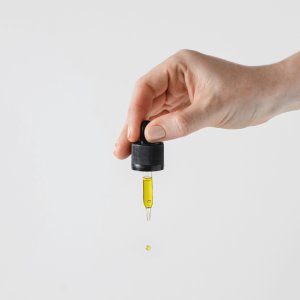
Combining THCp with Other Cannabinoids
Combining THCp with other cannabinoids like CBD or CBG can offer a range of synergistic effects, often referred to as the “entourage effect.” Early case studies suggest that mixing THCp with CBD can help balance the intense high of THCp, potentially reducing side effects like anxiety or paranoia. For example, a blend of THCp and CBD might offer potent pain relief with a smoother, more manageable head high.
Personal experiences vary, but many users recommend starting with a balanced ratio to find the sweet spot that works best for individual needs. Whether for therapeutic purposes or enhancing recreational experiences, mixing cannabinoids can tailor the effects in ways that pure THCp alone may not achieve.
Conclusion
In summary, THCp comes with both natural and synthetic production methods, each presenting unique challenges. Common consumption methods include edibles, tinctures, oils, as well as smoking and vaping, each offering distinct experiences and effects.
Potential side effects can range from mild to intense, necessitating cautious dosing, especially for newcomers. Dosage recommendations highlight the importance of starting low to gauge individual tolerance levels. Additionally, combining THCp with other cannabinoids like CBD can provide balanced effects, enhancing both therapeutic and recreational use.
Looking forward, the future of THCp in research seems promising as scientists continue to explore its potency, efficacy, and potential benefits. As market interest grows, we can expect more refined products and possibly new regulations to ensure safety and quality.
For those curious about THCp, it’s advisable to start with lower doses and consider combining it with other cannabinoids to mitigate side effects. Approach this potent cannabinoid with mindful caution and enjoy the unique experiences it offers.
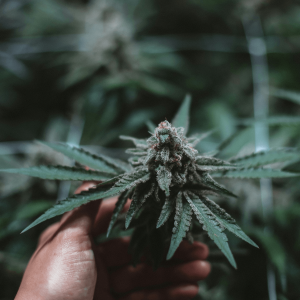
Frequently Asked Questions
1. What does THCP do for you?
THCP is known for its potent psychoactive effects, even more intense than those of regular THC. Users often report a more profound and longer-lasting high, accompanied by heightened euphoria, relaxation, and sensory perception. It can also provide significant pain relief, help with sleep, and reduce stress and anxiety when used appropriately.
2. Is THCP the same as Delta 8?
No, THCP is not the same as Delta 8. Delta 8 is another type of THC that is less potent than Delta 9 THC (the primary psychoactive ingredient in cannabis). THCP, on the other hand, is significantly more potent than Delta 9 THC. Because THCP binds more effectively to CB1 receptors, it produces stronger effects even at lower doses compared to both Delta 8 and Delta 9 THC.
3. Is it safe to take THCP?
Safety around THCP is still being researched, but because of its high potency, it is advised to approach with caution. Starting with very low doses can help gauge individual tolerance. Potential side effects include dry mouth, red eyes, increased heart rate, paranoia, anxiety, and dizziness. Combining THCP with other less psychoactive cannabinoids, like CBD, may help mitigate some of these adverse effects.
4. How long does THCP high last?
The duration of a THCP high can vary depending on the method of consumption. On average, when inhaled through smoking or vaping, the effects can last for 2-4 hours. Edibles and tinctures, which are consumed orally, typically have a longer duration, often lasting 4-6 hours or more due to the way THCp is metabolized in the body. Individual experiences may vary, so starting with a small dose helps manage the intensity and duration of the high.

 Rewards
Rewards



